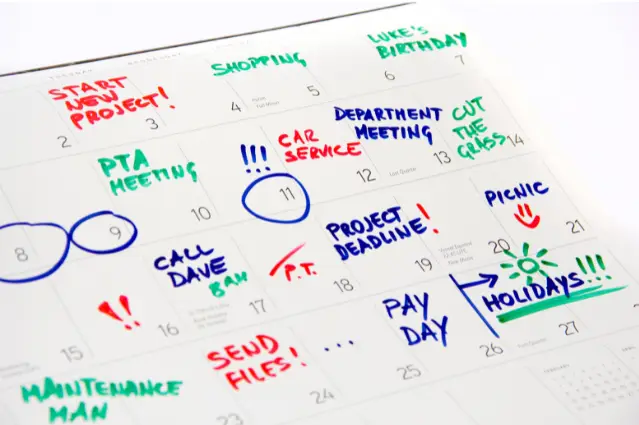Losing touch with friends because of long hours at work or chasing big career goals feels all too common. When work takes over, social plans fall by the wayside until days turn into years, and the gap widens. It’s easy to feel regret, but it’s also easy to forget how much these connections matter, until you find yourself wondering how to reconnect with old friends and bring those relationships back to life.
Reconnecting with old friends does more than ease loneliness—it boosts your mood, lowers stress, and adds meaning to busy days. Rekindling friendships you’ve missed isn’t just good for your mental health; it gives you a stronger support system for whatever comes next. Restoring these bonds takes intention, but the rewards are worth it.
Understanding the Impact of Career-Driven Disconnection

Long hours at work and intense focus on career goals can leave friendships in the shadows. It’s easy to say, “I’ll catch up when things slow down,” but the days add up before you know it. Little by little, lunch dates turn into missed texts, and inside jokes gather dust. The strain that career ambition puts on relationships happens quietly, but its effects often show up loud and clear.
Why Friendships Drift During Career-Focused Years
It’s common for friendships to fade when your calendar fills up with meetings and deadlines. People grow apart not because of a single argument but from a string of tiny, skipped moments—missed calls, declined invites, or simple exhaustion. Sometimes, it’s distance or new routines that get in the way. Other times, friends grow in different directions.
- When you regularly put work first, your energy for social connection shrinks.
- A packed schedule makes it easy to put off connecting “just one more week.”
- Over time, you and your friends may stop reaching out, each thinking the other is busy.
Want to see how to reconnect with old friends and how others handle this challenge? Many people wonder if it is normal for friendships to fade away in their thirties. This discussion about drifting friendships after 30 sheds light on how common it is for life changes to pull people apart.
The Psychological Consequences of Neglecting Social Bonds
Neglecting friendships doesn’t just affect your social life; it can also affect your mental and emotional health. Humans are wired for connection; when our bonds weaken, feelings of loneliness or sadness can start to build up in the background.
- Lower mood and motivation: Feeling out of touch can sap your energy and happiness.
- Growing sense of isolation: Even with work success, you might feel like something is missing.
- Regret: Over time, missed opportunities to connect can lead to questions about what you’ve lost.
Research highlights the importance of staying socially connected. According to a study published on PubMed, isolation and neglect—not only in childhood but throughout all stages of life—can increase the risk of depression and harm emotional well-being.
Loneliness and Regret: Signals That It’s Time for Change
It’s normal to feel regret or loneliness creep in after losing touch with friends. These feelings aren’t signs of weakness; they’re signals from your mind and heart, telling you something important.
- Loneliness reminds you of what valuable connections once brought to your life.
- Regret can spark reflection, motivating you to rebuild and nurture lost bonds.
You’re not alone if you feel that ache. Most people experience this when career pressure crowds out connection. Recognizing these feelings can be the first step toward building your friendships back, giving your life richness beyond your work.
Assessing and Prioritizing Friendships to Restore

Restoring old friendships can feel like picking up a book you haven’t read in years—you remember the story but wonder if it still fits your life. Before reaching out, reflecting on which friendships you truly miss, and which left you feeling drained is helpful. Not every social tie needs to be rekindled; some are best kept as warm memories. This section will help you sort through your past connections to determine which ones might fill your cup again, and which are better left in the past.
Identifying Friendships Worth Rebuilding
Start by asking yourself which old friends come to mind when you feel nostalgic or miss good conversation. Genuine longing for connection is a strong sign to consider a reconnection. But it’s not the only factor. Use these prompts and steps to help clarify your feelings:
- Recall the positive memories: Do you think of laughter, support, shared milestones, or mostly the arguments and letdowns?
- Notice your immediate reaction: Does thinking about them spark joy or warmth? Or just guilt and obligation?
- Consider personal growth: Have you evolved in ways that might make the friendship healthier now?
- Check your motives: Are you reaching out because you admire who they are, or just because you feel lonely?
- Mutual benefit: Did this friendship bring out your best self, and did you do the same for them?
Jot down the names of the people who have more positives than negatives. This “shortlist” gives you a starting point for who’s worth contacting first. As you sort through these names, balance your wish to reconnect with their likely interest and past engagement with you. This article from The Washington Post suggests that evaluating whether the relationship felt healthy and rewarding, rather than draining, will guide you toward friends who can add joy to your life again.
Recognizing When to Let Go
Some friendships aren’t healthy or mutual, no matter the history. Maybe there was a falling out, or values shifted so much that being in touch would take more than it gives. Being honest about what didn’t work helps you find peace.
- Past betrayals: If a friend broke your trust in significant ways, consider whether forgiveness is possible or just painful.
- Incompatible values: Are your core beliefs and lifestyles so different that meeting in the middle feels forced?
- Unhealthy dynamics: Did the friendship take more energy to maintain than you could give, leaving you drained each time?
- Lack of reciprocity: Have you always been the one reaching out, or do you sense the other person isn’t interested anymore?
- Lingering resentment: Do you notice that old wounds still sting or that reconnecting would exacerbate unresolved hurt?
There’s power in making peace with moving on, even if it brings sadness. Letting go doesn’t erase the good memories; it just acknowledges that some chapters have closed. Need more guidance on when (and why) not to revisit certain friendships? This LinkedIn guide walks through key signs that a relationship may not be worth restoring, like constant negativity, mismatched values, or lack of trust.
Prioritizing which friendships to restore isn’t about tallying old debts or nostalgia alone. It’s about finding relationships that suit the person you’ve become and setting boundaries with those that don’t.
How to Reconnect With Old Friends: First Steps
Starting the process to reconnect with old friends can spark a mix of excitement and worry. You want to send a natural message, not awkward or apologetic. Taking the time to reach out honestly and care can make all the difference, whether you choose a quick text or a longer email. Here’s how to take those first steps and what to expect.
Crafting Your First Message: How to Reconnect With Old Friends With Warmth and Ease

Reaching out doesn’t mean crafting a grand speech. The best messages feel friendly, warm, and genuine. Lead with a bit of nostalgia or a shared memory. This helps break the ice and reminds your friend of your shared history. Tell them why you’re reaching out and express your hope to reconnect.
Here are a few message samples for different platforms:
For Text:
- “Hey [Name], I was thinking about those late-night drives we used to take. Miss our old talks. Hope life’s treating you well—would love to catch up when you have time.”
- “Hi [Name], it’s been ages! I saw something that reminded me of that epic beach trip. How have you been?”
For Email:
- “Hi [Name], I hope this note finds you well. I was looking through some old photos from our college days and realized how much I’ve missed our catch-ups. If you’re open to it, I’d love to reconnect and hear what you’ve been up to.”
For Social Media:
- “Hey [Name], your recent post brought back some great memories of our [shared experience]. I realized how long it’s been. If you’re up for it, maybe we could grab coffee or chat soon!”
Use your own voice—don’t overthink formality. The key is to be specific about why you thought of them and sincere about wanting to reconnect. For more tips on starting the conversation, check out thoughtful advice on how to talk to an old friend or browse simple conversation ideas from The Kitchn’s expert tips.
When possible, mention something positive or funny from the past. Avoid diving into old drama—keep things light and forward-looking. If you’re nervous, remember that awkwardness fades fast once the conversation starts rolling.
Managing Expectations and Respecting Boundaries: Explore why some friends may not respond as hoped, how to handle non-responsiveness, and respecting differing capacities for reconnection
Not every old friend will jump at the chance to reconnect—and that’s normal. People change, get busy, or need more time to process a renewed friendship. Don’t take it personally if you don’t get a reply right away (or at all).
Here’s how to handle the different responses:
- No response: Wait a couple of weeks before following up. If there’s still silence, accept that your friend may not be ready or interested, and focus on the effort you put in.
- Short replies or a polite decline: Thank them for responding and leave the door open for the future. It’s about respect, not pressure.
- Warm response: Great! Keep things relaxed, suggest a call or meet-up, but give them space to choose the timing.
Everyone has different “friendship bandwidth.” Some may be going through busy seasons or personal challenges, while others may want to keep their distance. Respect their pace. Setting healthy boundaries—for yourself and the other person—supports positive reconnection and prevents disappointment.
If fear of rejection feels strong, remind yourself that reaching out takes courage, and you’re not alone in feeling uneasy. This helpful guide on overcoming the fear of rejection walks through self-kindness, resilience, and realistic thinking if you start to worry about being ignored.
Reconnecting is about giving, not demanding. Celebrate every step, no matter how small. A good friendship, even one that was once close, may need time and gentle effort to grow again. Respect for your friend’s (and your own) boundaries sets the stage for a more lasting connection, even if the outcome isn’t like old times.
Rebuilding Trust and Reconnect With Old Friends Over Time
Trust doesn’t reappear overnight. When you’ve lost touch with friends because work pulled you away, the road to rebuilding must be steady and genuine. Whether distance, missed birthdays, or growing pains caused a gap, the right mix of patience, honesty, and shared effort helps old friendships feel strong again. This isn’t just about restarting hangouts— it’s about making room for healing and new memories as you reconnect.
Addressing Past Conflicts or Misunderstandings
Apologizing can feel awkward, but it’s the foundation of fixing old wounds. If you ended on rough terms or if something unsaid hangs in the air, honesty would clear the path. Start with a note or a chat that’s simple and straight-up. Don’t point fingers. Focus on your role in the disconnect, even if it felt mutual.
Here’s how to approach those moments without making them heavier:
- Acknowledge your part: Admit your contribution to the drift or hurt. A simple, “I’m sorry I lost touch. I got wrapped up in work and know I missed a lot,” can mean everything.
- Offer a sincere apology: Keep your words real and short. Avoid excuses. Try, “I regret how we left things. I wish I’d handled it differently.”
- Invite conversation: Give your friend space to express their feelings without jumping to defend themselves. Listen with patience.
- Respect boundaries: Sometimes, the best way to rebuild trust is to respect their need for space or time.
According to advice on Verywell Mind, validating your friend’s feelings and committing to honest conversations are essential steps to restoring trust. Real repair happens when both parties feel heard and safe.
If things stay tense, don’t rush. Healing takes time. Being consistent, sending birthday wishes, or checking in shows you mean it, even if you’re rebuilding slowly. For more real stories and guidance, the thread on handling broken trust in a friendship offers insight on moving forward after trust has been shaken.
Creating New Shared Experiences: A Heartfelt Way to Reconnect With Old Friends Again

Past memories are a strong anchor, but building new ones brings friendships back to life. The best way to reinforce connection is through shared moments—laughing together, trying something new, or even just checking in regularly.
Try these ideas to make reconnecting feel natural:
- Meet up for something simple: Coffee, a walk in the park, or a casual lunch are low-pressure ways to make catching up easy.
- Start a hobby together: Join a trivia night, go hiking, or take a cooking class. Shared activities spark genuine conversation and inside jokes.
- Virtual hangouts: If distance is an issue, watch a movie together online or start a regular video call. Some friendships thrive on a good online board game or shared playlist.
- Plan a small tradition: Create a birthday ritual or a seasonal catch-up. Patterns build anticipation and a sense of belonging.
Shared interests matter but so does simply showing up, even if it’s not perfect. The Trevecca Blog highlights how peer activities, mentoring, or learning something new together gives fresh energy to old bonds. If you want to up the game with something memorable, these unique friendship experiences suggest activities—like group trips or creative projects—designed to deepen connection quickly.
The key is consistency. Each shared experience, no matter how small, fills the gap left by the years apart. Vulnerability and gentle persistence go a long way. Even if you pick up where you left off, every new memory proves the friendship is alive and growing.
How to Reconnect With Old Friends and Keep the Bond Alive Despite a Busy Life

Once you’ve reconnected with a friend, keeping that relationship strong while juggling a demanding job isn’t always easy. Life’s busy seasons don’t pause for social plans. However, with some intention and minor routine tweaks, it is possible to keep your friendships alive, without burning out. Integrating meaningful connections into your daily life is key, so it feels like a natural part of your schedule, not another stressful task.
Integrating Friendship into a Busy Lifestyle: Practical tips for prioritizing friendships even when balancing a demanding job or family life
No one has endless free time, especially with a career or family pulling them in multiple directions. But friendships thrive on regular, honest attention—even in short bursts rather than long hangouts. These strategies help you fit friendship into a packed calendar:
How to Connect With Old Friends—Even When You’re Busy
- Schedule standing catch-ups. Set up a recurring date—maybe every month or six weeks. This could be coffee, a video call, or a lunch walk together. Treat this time like any other necessary appointment and protect it on your calendar.
- Send “thinking of you” check-ins. A quick text, funny meme, or voice note goes a long way when face-to-face meetings aren’t an option. Small, simple check-ins keep the relationship warm and remind your friend you’re present in spirit.
- Be upfront about your limitations. Let friends know when work will be intense, or you must go off the radar. Honest communication about your time makes your relationships feel safe, not neglected.
- Double up on social time. Find ways to blend your routines—a workout date at the gym, running errands together, or catching up during school drop-offs. Shared “life admin” moments can become meaningful time with friends.
- Use technology wisely. Video calls, group chats, or shared calendars make coordinating and staying in touch easier, especially if your friend lives far away or your schedules rarely align.
Sometimes, even small rituals make a big difference. Try sending voice messages while commuting or making it a habit to check in every Sunday night. These easy moves help your friendship grow, even if you can’t meet as often as you’d like.
The best way to make friendships last is with reliable habits, not grand gestures. You don’t have to see each other constantly—a consistent effort matters more than frequency. There’s relief in knowing that even little connections keep the foundation strong. If you want more inspiration or tips, check out these helpful ideas for How to Keep Adult Friendships and browse the 101 ways to make and maintain friendships for creative ways to weave friendships into daily life.
Remember, effort doesn’t have to look the same for everyone. The most valuable thing is showing up in whatever way fits your current season. Even if it’s just five minutes at a time, the steady rhythm of connection keeps restored friendships thriving as life progresses.
Conclusion
Restoring friendships you missed during your career brings a sense of belonging that’s hard to find elsewhere. These renewed bonds do more than brighten your day; they can boost your happiness, strengthen your emotional health, and even support your well-being long-term. Old friends remember where you started, and sharing new chapters only deepens your personal story.
It’s never too late to send that first message or plan a coffee. Most people welcome the chance to reconnect, even if the years have piled up. Small steps can create powerful change. Your effort can revive laughter, trust, and connection, proving it’s possible to grow together again.
Take this as your sign of how to reconnect with old friends: Reach out to someone you miss. You might surprise yourself with how much a simple “hello” heals—not just your friendship but your own peace of mind. Thank you for reading. If you feel inspired, share your experiences or tips for reconnecting below. The best time to rebuild may be today.
Boost your emotional health with meaningful social connection.
Download my free checklist: Top 10 Free (or Cheap Ways to Stay Socially Active in Retirement.
Discover how connecting with others supports your sense of purpose. Read my blog post on 10 Benefits of Volunteering That Make Retirement More Rewarding












Add comment